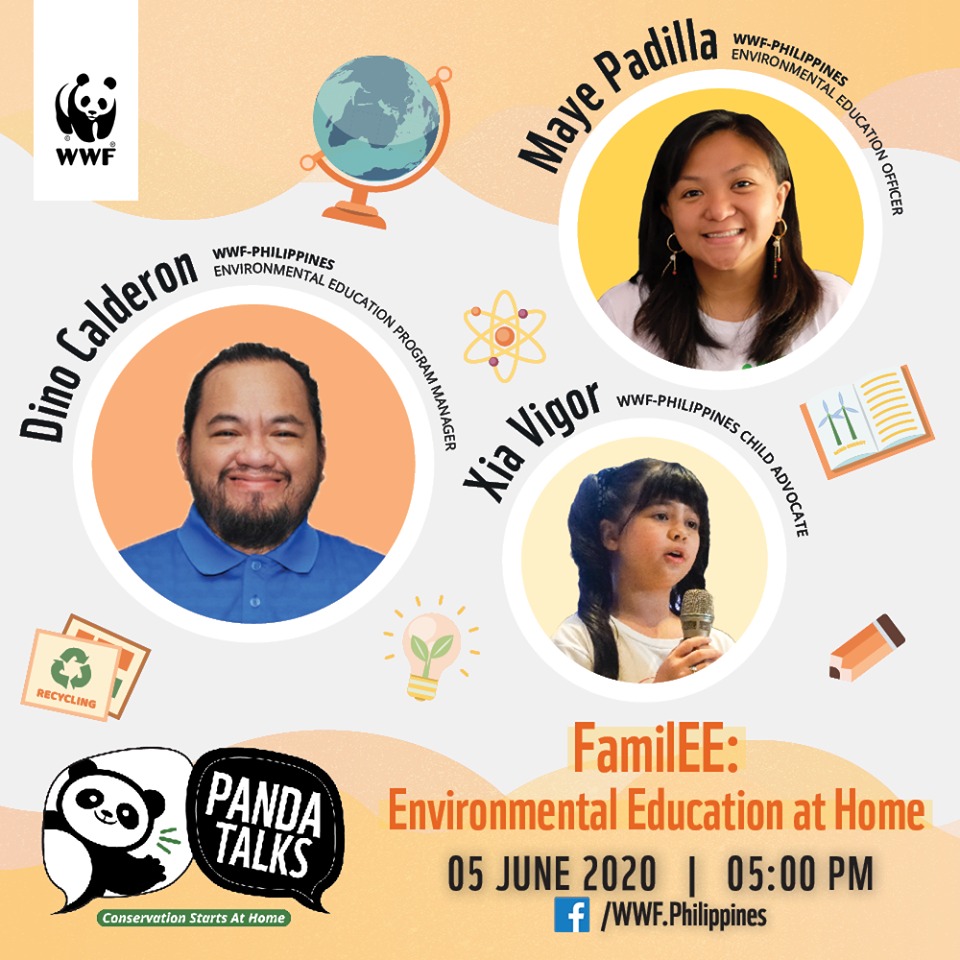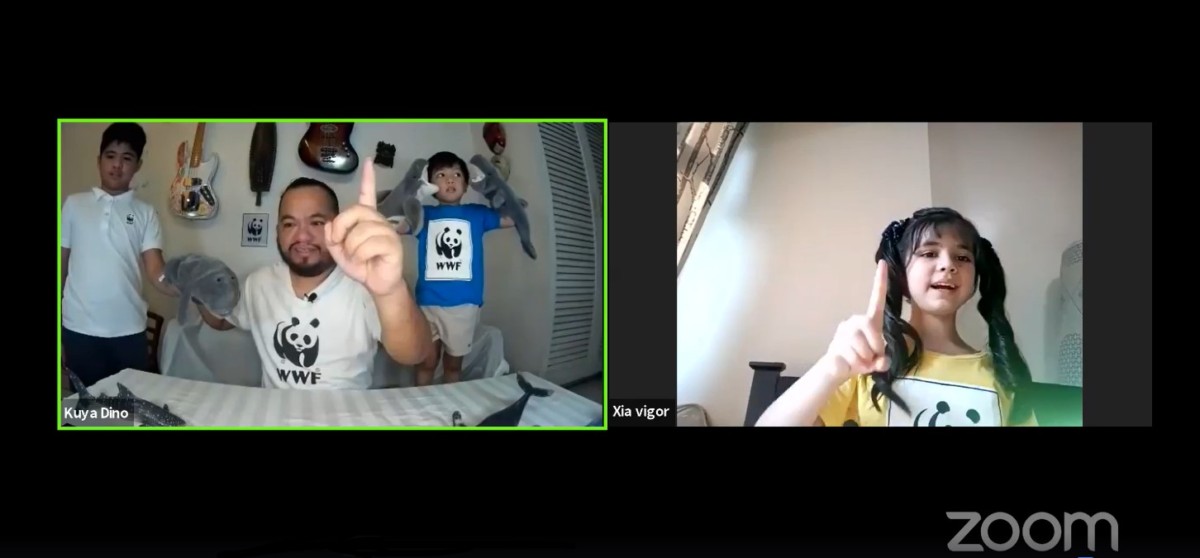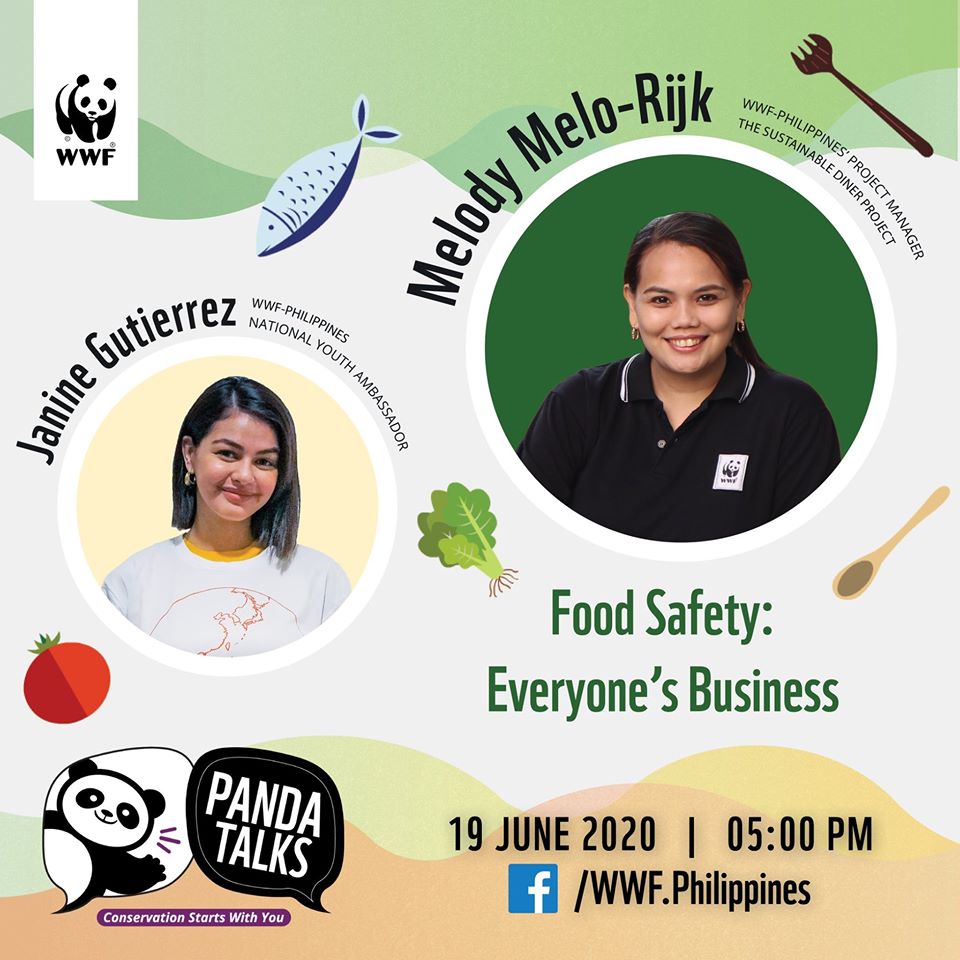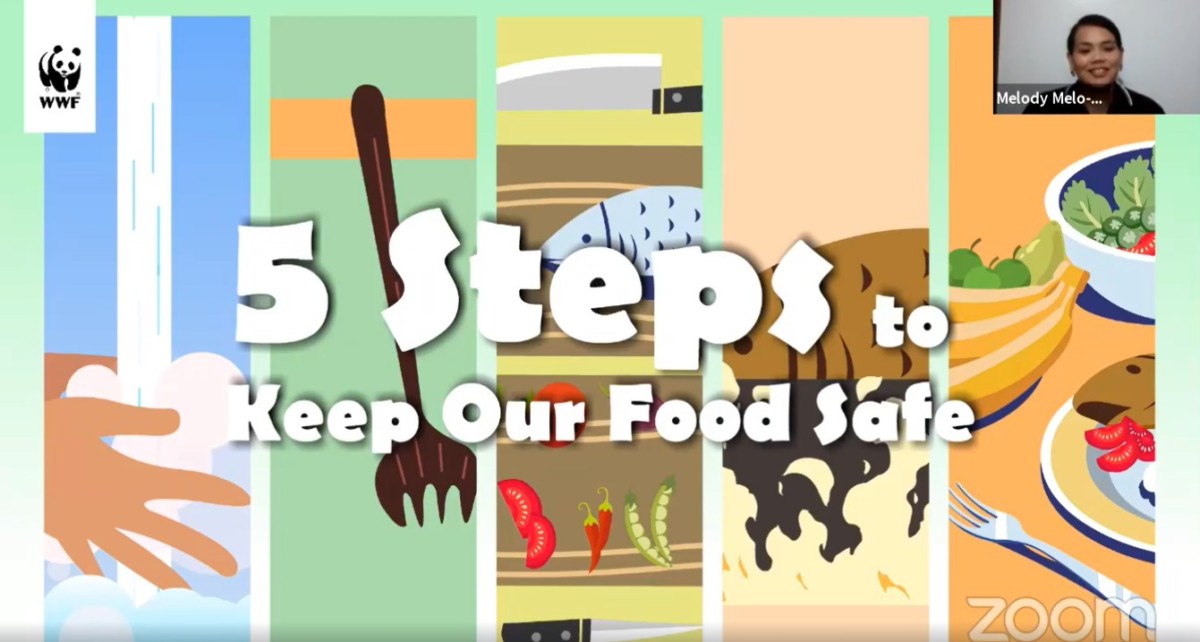Panda Talks highlight home-based conservation practices for the month of June!
June 2020

In celebration of the Philippine Environmental Month, World Wide Fund for Nature (WWF) Philippines launched two new webisodes of Panda Talks—the organization’s free live educational web series—introducing viewers to conservation habits and practices that they can easily do in the comfort of their own homes.
Environmental Education Starts at Home
To help parents introduce conservation, biodiversity, and environmentalism at home, WWF-Philippines Environmental Education front liners Dino Calderon and Maye Padilla hosted a live “turo” session last June 5 with WWF-Philippines National Child Advocate, Xia Vigor.

The duo shared how the different dimensions of environmental education—Head, Heart, Hand, and Face—can make learning about nature easy, fun, and relatable for kids while molding their values to genuinely care for the planet.
Mrs. Christy Vigor also joined the show to share how she helped Xia kick start her personal journey in advocating for the environment.
“Dahil dati kulang ang [environmental] information dito [Philippines] sa atin tulad ng self-sustainability, reducing carbon footprints, feeling ko kailangan officially magkaroon ng ganitong mga subject sa school dahil hindi nae-expose ang mga anak ko sa mga ganoon [topics]. So, ako na po mismo ang nagbigay ng lesson sa kanila,” the mother of two proudly shared.
A Q&A session concluded the show to encourage viewers to ask so they can help push conservation in everyday practices at home.

Food Safety: Everyone’s Business
For the sixth edition of Panda Talks, WWF-Philippines Project Manager for The Sustainable Diner Project Melody Melo-Rijk and WWF-Philippines National Youth Ambassador Janine Gutierrez teamed up to discuss food safety procedures at home and for business establishments—a topic especially relevant today, with many Filipinos going into online food selling and home-based food businesses.

Melo-Rijk highlighted that among everything else, food safety starts with proper hygiene and regular sanitation of cooking tools and equipment. In addition, preventing contamination in the food chain will reduce foodborne illness and reduce the likelihood of the emergence of novel diseases such as COVID-19.
With 80% of the total biodegradable waste in the Philippines made up of food waste, the show also encouraged viewers to be more responsible food consumers by planning meals ahead, ensuring proper food storage, buying products that can surely be consumed, and being creative with their meals to avoid food wastage.
WWF-Philippines aims to equip the Filipino people with knowledge on key environmental issues through Panda Talks. For more information on Panda Talks’ next webisodes, log on to http://wwf.org.ph or follow WWF-Philippines in its official social media pages.
For more information, please contact:
Ms. Pam Luber
Integrated Communications Manager
pluber@wwf.org.ph
Ms. Chezka Guevarra
Public Relations, Media, and Events Assistant Manager
cguevarra@wwf.org.ph
